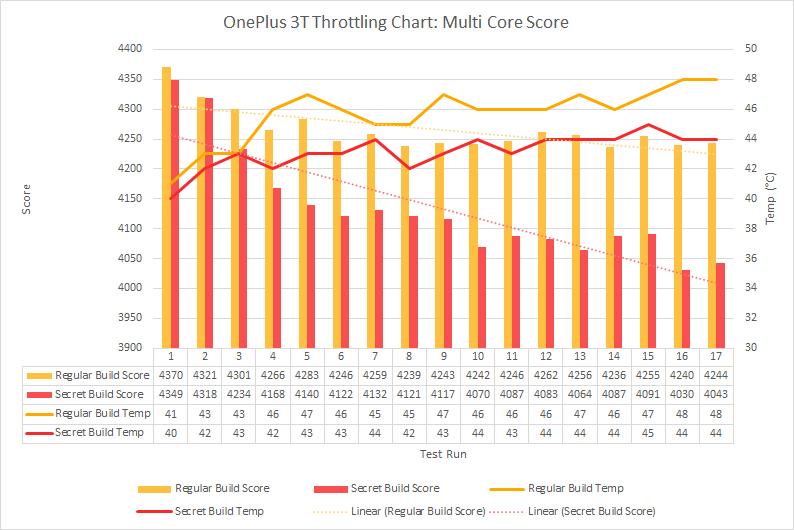The latest evidence comes from the hand of XDA-Developers, where, after a thorough investigation, ensure that OnePlus and Meizu have used special optimizations for their mobile star to get higher scores in various benchmark tests. However, it is not an isolated fact, in the past, many other brands have also been accused of ‘makeup’ the benchmarks. Although they have different processors (the OnePlus 3T carries the Snapdragon 821 and Meizu Pro 6 Plus carries the Exynos 8890) We are faced with two models that play in the same league as’ flagship killers coming from China. However, this status is not the only thing they share. According to XDA’s research, both models are using benchmark optimization systems to get higher scores. What they do is detect when a benchmark app is activated to modify its operation and move to a mode that enhances the performance which is not usual in normal scenarios. Although we were unable to obtain an official response from OnePlus, they would have offered an explanation to XDA. OnePlus ensures that added a mechanism to squeeze a little more uses of the processor in certain applications that require more system resources, including titles like AnTuTu or Geekbench 4. As a result, OnePlus has promised to eliminate the system that increases the CPU performance in these benchmark apps in the next update of OxygenOS. Moreover, here is what the OnePlus stated “In order to give users a better user experience in resource intensive apps and games, especially graphically intensive ones, we implemented certain mechanisms in the community and Nougat builds to trigger the processor to run more aggressively. The trigger process for benchmarking apps will not be present in upcoming OxygenOS builds on the OnePlus 3 and OnePlus 3T”. While in the case of Meizu, the well known XDA-Developers has discovered that Meizu adjusted its big cores to activate whenever benchmarks are detected. As we all know very well that the big cores are only expected to switch on anytime when the device necessitate additional processing. So, Meizu Pro 6 does not depend on the bid cores when it runs the regular applications. As the big cores simply get activated when it detects the benchmark apps.
Δ



